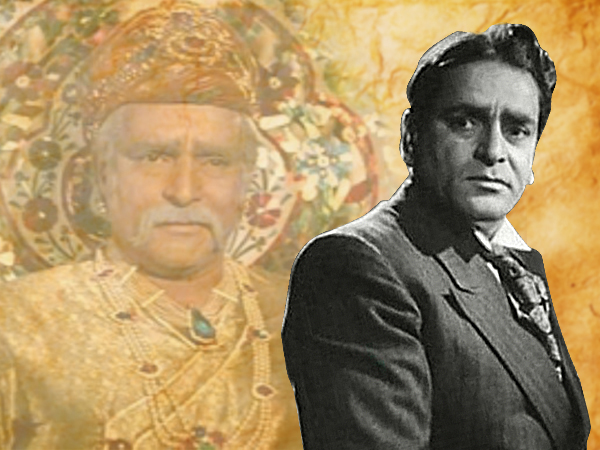
Eminent personality and a pool of talent is what comes to our mind when we hear the name Prithviraj Kapoor. The veteran actor was the first of the clan of Kapoors, who went on to entertain us generation after generation, and still are. The patriarch of the family, Prithviraj Kapoor had begun his career in the silent era of Indian cinema. But, later he made a mark for himself with many iconic talkie films like the magnum opus ‘Mughal-E-Azam’ and ‘Awara’, with son Raj Kapoor directing and co-starring in the latter. However, did you know that this iconic star was once shown the board of ‘No Vacancy’ at a studio? Sounds unbelievable, right? But, it happened.
It was in the year 1928, Prithviraj Kapoor had moved to Bombay by borrowing some money from his aunt. In an old interview, the late veteran actor recalled about that day when he had an interview with late filmmaker Ardeshir Irani. He had said, “I asked for an interview with Ardeshir Irani of the Imperial Studio. While I was waiting to enter his office, I met a young, handsome man –like me, he too was a “hopeful.” I stood aside for him to go in first. But he came out soon enough. He was told that there was no vacancy, and he gave me a look that suggested that I was wasting my time.” (Also Read: A mark to remember: When Raj Kapoor burnt his hand, for a promise)
But, Prithviraj entered the office where Ardeshir looked at him and with a smile asked, “Why have you come in? Didn’t you see the board placed there to say that there is no vacancy.” Prithviraj replied saying, “Yes, sir, I did.”
“Well, then why are you here? There is no vacancy. You may go.” For a full minute I (Prithviraj) could not speak, after which I said, “But, sir, I shall feel obliged for your advice.” Ardeshir looked at me and said, “Well, I cannot engage you but, if you like, you can be an unpaid extra.”
“I understand, sir,” I replied, “the meaning of the word ‘unpaid,’ but I don’t know what ‘extra’ means.” My ignorance must have caused some mirth, but Ardeshir was kind to me and explained: I was to be an actor of no importance, just one of a crowd. I closed my eyes for a moment and then said, “Give me your blessings, sir. I will take the job.” Ardeshir laughed and said, “My dear boy, you are sure to make a mark.”
“He gave me a note to the director. And soon I found myself in the makeup room, which was crowded. A little later I was on the sets. Thus I worked for ten days and, the next day, when I was in the extras’ make-up room B.P. Misra summoned me. I was placed before the camera, and “shot.” I was made to look “right–left–above–below.” My screen-test was over, and I was asked to see Ardeshir Irani. Misra said that he wanted me to be the hero in his next picture. Irani told me that I would be paid Rs 75 a month.”
And finally, Prithviraj Kapoor bagged his first film as the hero titled ‘Cinema Girl’ which was released in year 1929. After that, there was no looking back. The senior most Kapoor went on to star in nine silent films, post that, and also played a supporting role in India’s first film talkie ‘Alam Ara’ (1931) which was directed by none other than director Ardeshir Irani, who was the one to show him the ‘No Vacancy’ board in the first place. Who knew that a meeting of few minutes will turn out to be a mentorship that would change the history of Indian cinema.
This slice from the life of Prithviraj Kapoor makes us believe in the words fate and destiny. We cannot imagine Bollywood without the contributions of this man.
Quiet, resonant, and creative, he can be seen immersed in his own world, and puts in his heart and soul into the one passion that he has, Bollywood. His line for survival? Feel happy to be a part of it.

























